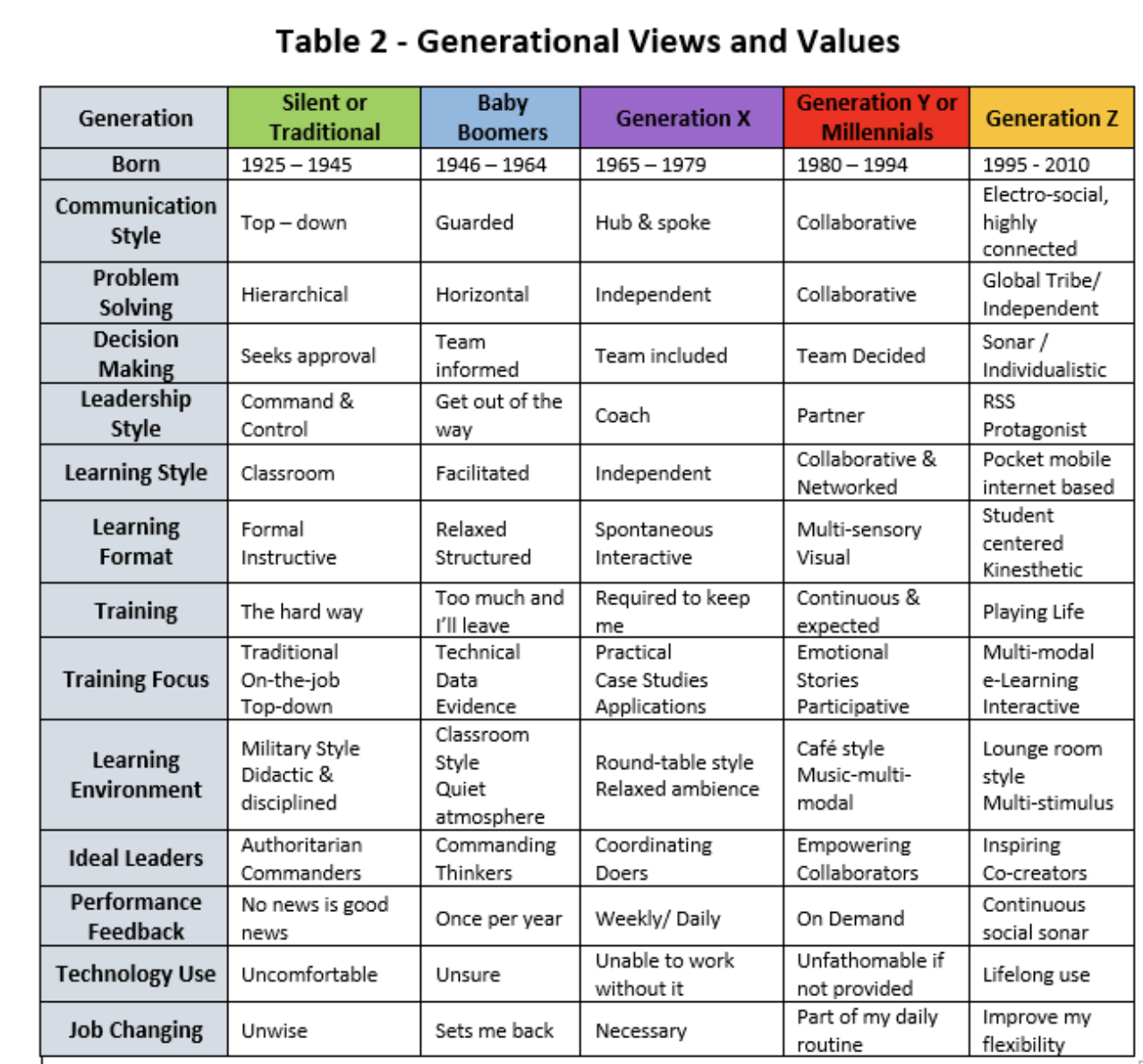Urban Oasis
PROJECT DETAILS Cost: $500,000 | Size: 2 acres | Timeline: 1 year
How Can We Understand Each Other Across the Generational Divide?
We believe we are in the green industry where we grow materials, or design, install, and manage landscapes. We are actually in the people business. We are people-centric. This means it is an absolute necessity that we understand the people with whom we work, building relationships inside our companies and with the customers we serve. How do we foster healthy and productive relationships? We communicate.
I don’t know about you, but in my horticultural education in college or on the job, I never had a class in people, communication or leadership. Realizing that these competences were just as important as plant knowledge was eye-opening.
As our industry grows, we find that the workforce (and our client base) may cover ages from 18-80. It has been identified by social scientists that there is a wide range of communication styles across these generations. Not only do generations communicate differently, but styles of leadership and learning, longevity within the company, and problem solving all differ radically.
There are 5 age groups that have been identified, along with their communication and leadership “styles.” These identified birth years are: Traditional (1925-1945), Baby Boomers (1946-1964), GenX (1965-1979), GenY/Millennials (1980-1994) and GenZ (1995-). Companies may include staff or clients from every one of these groups. It is critical to understand how each group gives and receives information and learns. We have all experienced frustration with sending emails/texts and receiving zero response. Why? Why do some of our customers only want personal phone calls and refuse to use technology to communicate?

We may have repeatedly explained or taught concepts, and do not understand why the team member doesn’t “get it.” Or struggle to understand the job hopping that happens all too often. Why can’t someone who is hired just stick with the job? Why do they change jobs every year or so? Others find it hard to believe people can tolerate one job for decades.
As owners or supervisors, we may not understand why those in the younger age groups seem to want constant feedback or praise. Isn’t having a good job with a good paycheck enough? Why can’t they easily take on responsibility? And then there is the struggle with change. Change is a way of life. Why are some people comfortable with change and/or new technology and others are not?
The first steps are acknowledging that there are significant differences between generations and becoming aware of how we can adapt. As leaders in our industry we must learn to be flexible in our expectations of others whether they are staff or customers, and in our generation or another.
.png)
PROJECT DETAILS Cost: $500,000 | Size: 2 acres | Timeline: 1 year

Deborah Cole on Developing A Business That Does More with Less